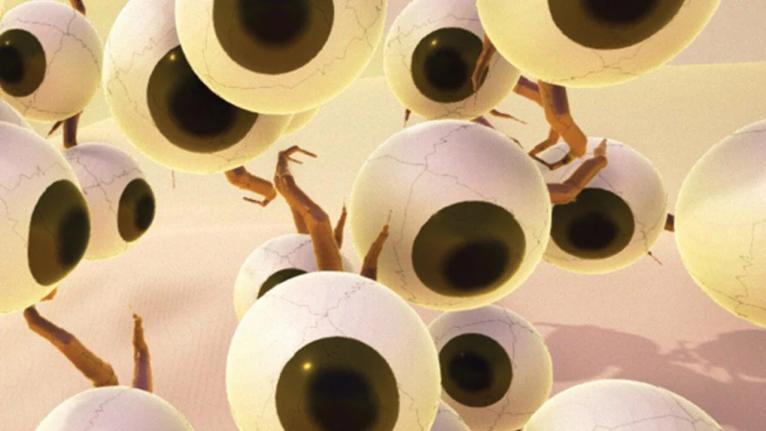With panels, discussions, and demonstrations, Dreaming with Eyes Open will bring together leading Virtual Reality (VR) artists, philosophers, theorists, and technologists to explore the revolutionary implications of this rich, immersive medium. Hear from Academy Award–winning visual effects artist Kevin Mack of Shape Space; groundbreaking artist Asad J. Malik, whose 1RIC Studio focuses on telling the stories of culturally underrepresented voices through augmented reality; Janet H. Murray, author of Hamlet on the Holodeck; Amelia Winger-Bearskin, who is co-directing a 360 video story about Native American monsters; USC Dornsife philosophy professor Kadri Vihvelin; and UC Irvine professor of cognitive science Donald Hoffman, who wrote the provocative and widely circulated article “The Case Against Reality.”
Schedule of Events:
2:30 p.m.: Registration and coffee
3 to 5 p.m.: Panel and Q&A with Kevin Mack, Asad J. Malik, and Paisley Smith
5 to 6 p.m.: Workshop/demonstration
6 to 8 p.m.: Panel and Q&A with Janet H. Murray, Kadri Vihvelin, Donald Hoffman, and Amelia Winger-Bearskin
Bios:
Donald Hoffman is a professor of cognitive science at UC Irvine and a recipient of a Troland Award from the National Academy of Sciences. He is the author of Visual Intelligence: How We Create What We See and coauthor of Observer Mechanics: A Formal Theory of Perception. He has worked as a project engineer at the Hughes Aircraft Company and a research scientist at the Laboratory for Artificial Intelligence at the Massachusetts Institute of Technology. (TED Talk, Wikipedia)
Kevin Mack is an artist and Academy Award–winning visual effects pioneer known for his work on the 1998 film What Dreams May Come. Mack’s art practice is inspired by transcendent visions, technology, and natural phenomena, and is informed by research in a wide range of fields, from neuroscience to artificial life. Among the first to exploit the unique capabilities of 3-D printing, Mack produces sculptural forms that cannot be achieved by any other means. He formed Shape Space VR with his wife, artist Snow Mack. (, Facebook, IMDb, Twitter)
Augmented reality artist and designer Asad J. Malik is the founder of 1RIC Studio. He believes that the further development of virtual/augmented realities, artificial intelligence, nanotechnology, gene editing, and neuroscience will significantly alter the human condition in our lifetime, and that it is our job to make sure that this radical technological change leads to radical socio-political change instead of maintaining the established order of societal affairs. (Twitter)
Janet H. Murray is the Ivan Allen College Professor of Digital Media and Associate Dean for Research in the Ivan College of Liberal Arts at Georgia Tech, and an internationally recognized interaction designer specializing in digital narrative and digital humanities. She directs the Prototyping eNarrative Lab at Georgia Tech and was named one of the “Top Ten Brains for the Digital Future” by Prospect magazine. She is the author of Hamlet on the Holodeck: The Future of Narrative in Cyberspace and Inventing the Medium: Principles of Interaction Design as a Cultural Practice. (Blog, Twitter)
Paisley Smith is a Canadian filmmaker and virtual reality creator based in Los Angeles, California and Vancouver, British Columbia. She is the creator of Homestay VR, produced by the National Film Board of Canada Interactive, with Jam3. Homestay was selected for the IDFA DocLab in 2017. Smith is the recipient of the 2018 Sundance Institute and Robert Rauschenberg Foundation Fellowship for her forthcoming work Unceded Territories: VR, a collaboration with acclaimed artist and VR pioneer Lawrence Paul Yuxweluptun. She is a visiting artist at the Mobile and Environmental Media Lab led by Scott Fisher, housed within the USC School of Cinematic Arts. Smith holds an MFA from the USC School of Cinematic Arts, which she attended on a Fulbright scholarship. (Official website)
Kadri Vihvelin is a professor of philosophy at USC and the author of Causes, Laws, and Free Will: Why Determinism Doesn't Matter. Vihvelin’s research is focused on topics in metaphysics and ethics, especially free will and the theory of action, time travel, causation, counterfactuals, dispositions, moral responsibility, and the doing/allowing distinction.
Amelia Winger-Bearskin is an artist, creative director, and organizer who develops cultural communities at the intersection of art, technology, and advocacy. She is the executive director of IDEA New Rochelle; a member of the 2017–2018 cohort at NEW INC; and a Google VR JUMP Start creator, co-directing with Wendy Red Star a 360 video story about Native American monsters. In 2016, she founded and directed the DBRS Innovation Labs, an applied AI research lab. She is also the founder of the Stupid Hackathon and recipient of numerous fellowships and awards. Winger-Bearskin is Haudenosaunee (Iroquois) of the Seneca-Cayuga Nation of Oklahoma, Deer Clan. (Twitter, Vimeo)
Co-presented USC MxR Lab, USC Mobile and Environmental Media Lab (MEML), USC Game Innovation Lab, and USC Visions and Voices: The Arts and Humanities Initiative.

